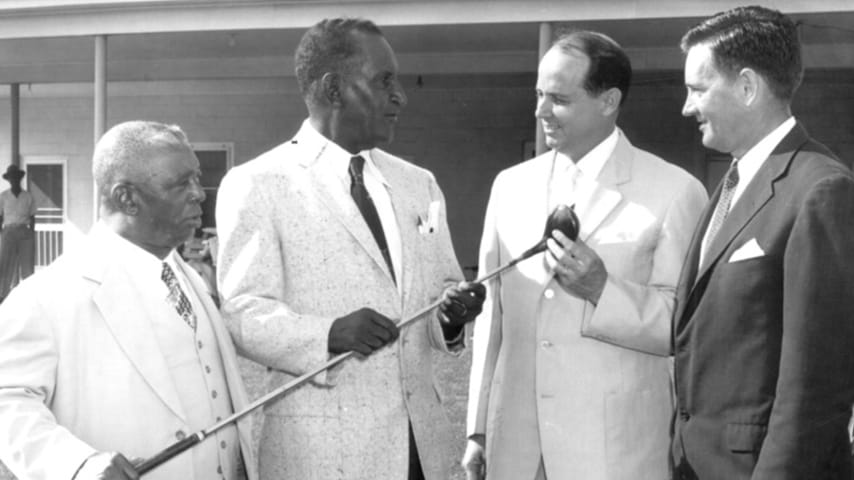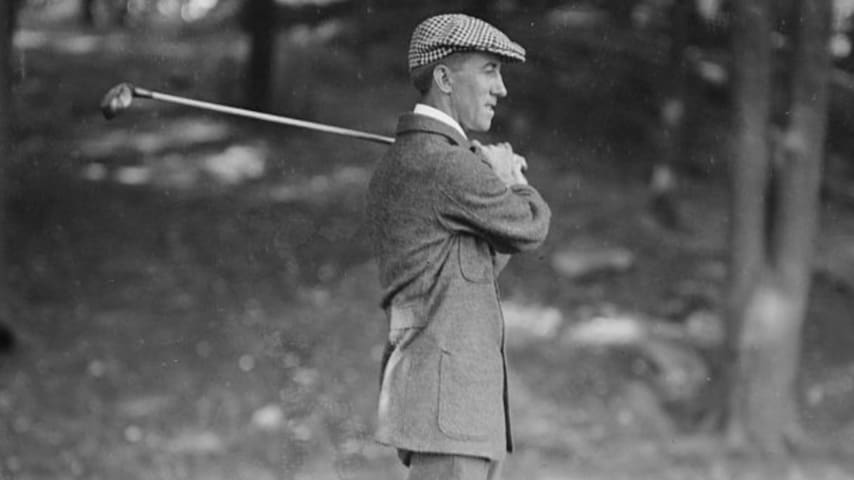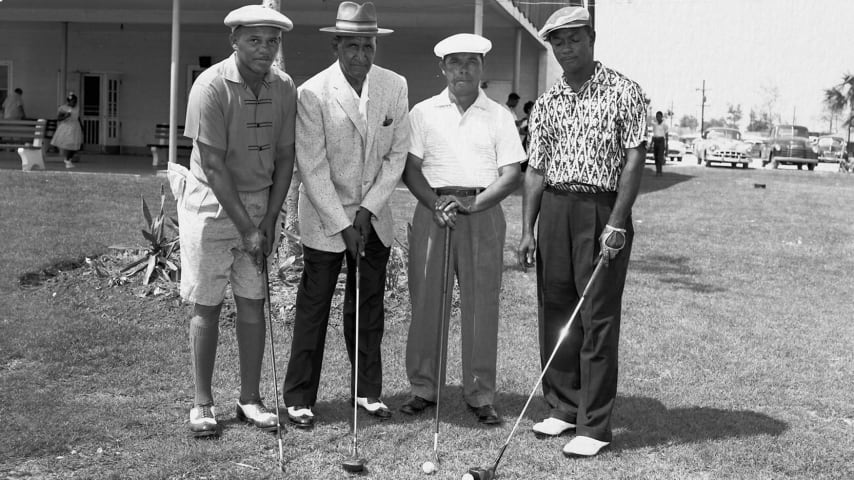Joe Bartholomew was New Orleans golf pioneer
4 Min Read

Renowned Black architect was driven to inspire, lead others
Written by Tyler Bruno
Renowned Black architect was driven to inspire, lead others
Trying to find a purpose in the game I love led me to a man buried in the history of golf, and in hearing his story I realized his triumphs run through my veins.
I was introduced to the game young, and as it is for most Black golfers, the local muni was a safe haven. As I grew older and got more immersed in golf, I began to hear stories from Black golfers about their hardships in simply playing a game they loved. This motivated me to seek out other stories of local legends who fought for someone like me to be safe in a game that didn’t always feel accepting. One such legend would change my life and outlook on the game.
Joe Bartholomew was born on August 1, 1881, in New Orleans. He started his golf journey as a caddie at Audubon Park Golf Club, where he learned course maintenance and taught himself the game, becoming one of the greats in the area. Many, including wealthy white businessmen, wanted to challenge Joe to a game every chance they got. One of those challengers was the 1908 U.S. Open champion Freddie McLeod, a golf pro at Audubon Park Golf Club. Immediately upon his hiring McLeod was impressed by the young Bartholomew. McLeod hired Joe and taught him valuable skills such as clubmaking as Joe continued to develop his talents.
Then came the opportunity of a lifetime.

1908 U.S. Open champion Freddie McLeod teeing off.
In the early 1900s, members of the Metairie Golf Club began to craft ideas for a new 18-hole course that would be located in rural New Orleans. They chose Joe to build it, even though at the time the idea of a black golf course designer was unknown. A Metairie Club member by the name of H.T Cottam had the most confidence in Joe’s ability, so much so that he encouraged other members to send him to New York for proper training. There, Joe worked with Seth Raynor, who was considered the best in the business, and learned how to build greens, shape fairways, and form bunkers. He returned to New Orleans with a clear idea of his perfect course.
Joe started building it, but Metairie members grew impatient, eager to see returns on their investment. With the course location hard to get to, he brought them by horse-drawn wagon, and what they saw left them speechless. Joe had been quietly crafting one of the most creative and advanced courses people in New Orleans had ever seen. In awe of his work, many members vouched for an increase in Joe’s salary. He completed the course and stayed at the Metairie Golf Club for a while but was sadly unable to enjoy his creation because of restrictive Jim Crow laws that plagued the South till the later parts of the 1960s.
The story of Joe Bartholomew did not stop there; he was just getting started. He went on to build what many know as City Park No. 1, City Park No. 2, and Pontchartrain Park courses. He built courses outside of New Orleans, too, in cities such as Baton Rouge, but with Jim Crow the story remained the same: You can build it, but you can’t play it.

Joseph Bartholomew, second from left, at Pontchartrain Park in New Orleans which was later named the Joseph Bartholomew Golf Course. (Louisiana Division/City Archives, New Orleans Public Library)
Upset at not being able to play his courses, Joe didn’t just get angry, he got busy. He built a course for Black golfers, a place that he and others could call home. He formed one of the state’s most successful general construction companies, becoming the first Black to receive a contract to repave Tulane Avenue. He saw it as his mission to inspire generations after him, too, and lent his considerable financial support to HBCUs Dillard University and Xavier University.
The great Joe Bartholomew died October 12, 1971. The following year, he was the first Black inducted into the Greater New Orleans Hall of Fame, and after years of being segregated, the Pontchartrain Golf Course was renamed after him in 1979. Joe could have stopped following his passion after each hurdle, but he persisted in the hope that other Black golfers, like me, could feel confident playing a game that once sought to keep us out.
Joe Bartholomew was a pioneer who not only pushed the game forward but paved the way for many other impactful Black golfers. While researching his life and career, I couldn't help but think about the older Black men at my local muni who had a huge impact on me. I learned the most valuable lessons of my life from those men, and even today they continue to keep me grounded. The game of golf hasn’t always been kind to me, but still, I continue to push through for myself and generations to follow. I hope this story can reach one person and inspire them to wear their ancestors’ triumphs on their sleeves PROUDLY.

The author of the article, Tyler Bruno, playing at the Joseph Bartholomew Golf Course. (PGA TOUR)











